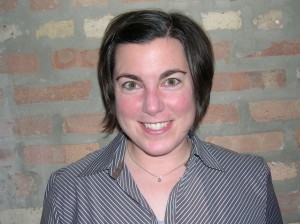Each ecourse registration is $130 for RUSA members; $175 for ALA members; $210 for non-ALA members; $100 for student members and retired members.
[LAST CHANCE!] “Introduction to Instructional Design for Librarians” begins October 3. Participants will learn to use the Instructional Design Process and apply it effectively to library instruction which includes: identifying instructional problems, learner analysis, task analysis, defining instructional objectives, sequencing content, identifying instructional strategies, message design, instructional delivery, and evaluation instruments. This course is taught by Carla James, PhD candidate Instructional Design & Technology-Old Dominion University. More information can be foundhere.
[LAST CHANCE!] “Research Methods Bootcamp,” begins onOctober 3. This ecourse is taught by Sharon Radcliff, business librarian at CSU East Bay. Radcliff has over twelve years of experience helping students and faculty with their research questions and has taught several business related courses for Simmons Graduate School of Library and Information Science. Librarians and/or library staff in public, school, academic and/or special libraries that perform or teach empirical research will benefit from this ecourse. More information can be found here.
[LAST CHANCE!] Beginning on October 3, is RUSA’s reoccurring ecourse “Interlibrary Loan 101.” This ecourse is taught by RUSA ILL experts Megan Gaffney, Tina Baich, Cindy Kristof, Collette Mak, and will be separated into four separate modules that cover the ILL process from both the borrowing and lending perspectives, copyright law and licensing impacts on ILL, and ILL resources and systems. This ecourse will cover both policies and procedures recently adopted in the Interlibrary Loan Code for the United States. Those new to the field of ILL working in public or academic libraries will especially benefit from this ecourse. More information can be found here.
[SPACES LEFT!] The new “Write, Speak, Design: Communication Skills for Library Professionals,” ecourse begins on October 10. Taught by RUSA member, Andy Spackman, participants will refine their abilities to create effective professional documents and oral presentations. Assignments and activities are designed to help participants prepare for real-life situations in the library. This ecourse will help all library staff members to develop the essential communication skills they need to be effective in their work and to achieve their career goals. More information can be found here.
A RUSA reoccurring favorite, beginning October 31, “Business Reference 101”, this four week course is taught by business reference expert, Celia Ross, librarian at the Ross School of Business, University of Michigan. This ecourse is designed for academic, special or public librarians and other researchers and library staff who have a basic understanding of some business resources but who do not work with them often enough to build expertise. The ecourse will provide students with a framework for understanding the business reference process as well as an overview of business reference sources specific to each of the course modules. More information can be found here.
Beginning October 31, “Genealogy 101”, a five week ecourse, will be offered by Matt Rutherford is Curator of Genealogy and Local History at the Newberry Library in Chicago. The course will outline basic sources and strategies, centered on a single case study. Topics covered include the U.S. Census, vital records, immigration research, military research and a variety of other basic genealogy sources. Students will also receive instruction in reference desk strategies and tools for further professional development. The course will cover archival material, print reference tools and online sources. More information can be found here.
Also beginning October 31, “Reference Interview 101,” one of RUSA’s most popular continuing education courses. Taught by reference expert and one of RUSA’s past presidents, David Tyckoson, has 30 years of experience in academic libraries. He is currently the Associate Dean at the Henry Madden Library, California State University, Fresno. Reference Interview is a comprehensive course focusing on the methods of evaluating reference service, behavioral aspects of reference service, and the different types of questions that can be used to help patrons identify what they need. This ecourse is tailored for support staff, library technicians, newly hired reference librarians, and those librarians who want to brush up on their interview skills. More information can be found here.


